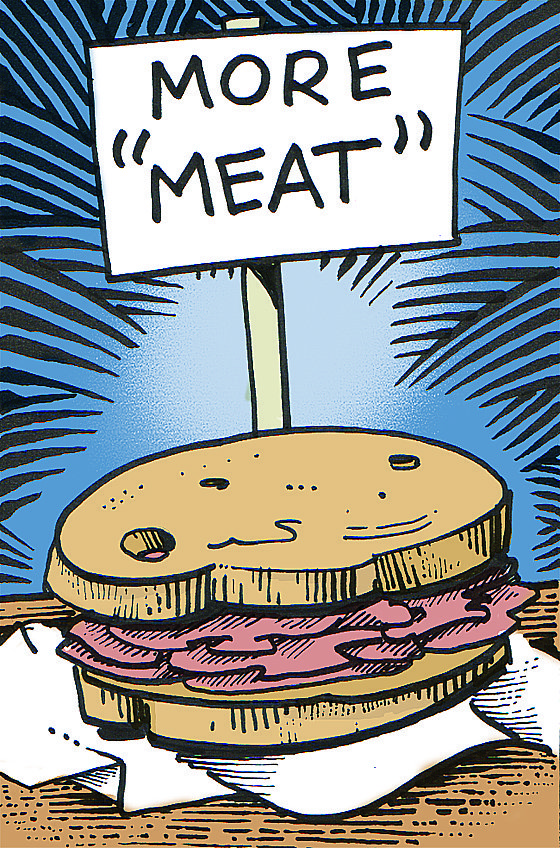We all know someone who uses air quotes in conversation, and we often mock this person.
Comedian Chris Farley did a classic skit on Saturday Night Live about a goofy guy who used air quotes for nearly every phrase. Mike Myers used the air quotes in the first Austin Powers movie to describe a laser.
But far worse than air quotes are quotation marks thrown into written sentences.
When you use them, it should be in an ironic, not-serious way.
The "gala event" turned out to be four people standing around sharing a bowl of slightly stale potato chips.
But people use them, incorrectly, for emphasis. An ad for a deli might read:
Our sandwiches have more "meat" than any deli in town!
This should make you wonder just what is in those sandwiches.
Avoid quotation marks in serious writing except, of course, when you're quoting someone.
I use them in this column to signal the words I'm talking about. I don't love this, but it's an accepted usage.
Some genius has created a website of photos showing excessive use of quotation marks. It cracks me up. Check it out at unnecessaryquotes.com.
MORE MYSTIFYING WORDS
Writing about mystifying words begets more. Readers reminded me of a few good ones this week, and I thought of more.
• Surfeit This is a surplus to a ridiculous degree. Its spelling is a curiosity, too.
We usually like the "i" before the "e."
At Eastertime, some people suffer from a surfeit of Peeps.
• Enervate When I see this word, I think it means the act of invigorating a person or thing. It's the opposite. Enervate is to be lacking in vigor, or to sap the energy out of someone.
• Irony An ironic item is contradictory or the opposite of what is expected.
Her name was Hope, but she was the most pessimistic person I have ever known.
Irony isn't something that's simply unlikely or coincidental.
TWO BY TWO (OR MORE)
Some words are more comfortable with themselves in the plural form.
You don't watch birds with a binocular. You don't swim with a goggle. You don't cut paper with a scissor or a shear. You don't wash clothes or dishes with one sud. You don't wear a trouser.
Police search the premises on the outskirts of town. The human species has gone through a series of changes.
Once in a Scrabble game, I was allowed to use "mump." Hmm, I thought that was a virus that attacked both cheeks. Indeed it is. In the Scrabble dictionary, where one finds fantastical words rarely spoken in the real world, "mump" is a verb meaning "to beg."
Then we have some words that reject a final "s." We don't count sheeps; we count sheep. We say one bison, two bison. One salmon, two salmon. One deer, two deer.
If you are arguing with someone in a crowded room, be careful if you hurl the insult, "You swine!" The others in the room may think you're speaking to them all.
Sources: Merriam-Webster, businesswritingblog.com, grammarist.com, Chicago Manual of Style, Fowler's Modern English Usage (Oxford University Press, 1926).
Reach Bernadette at bkwordmonger@gmail.com
ActiveStyle on 05/22/2017
